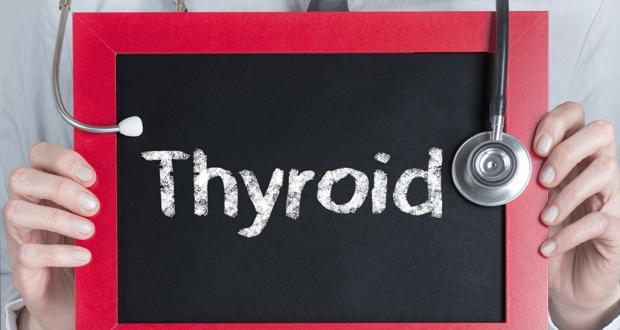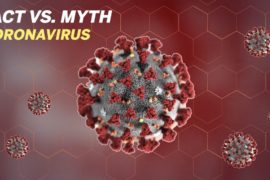The thyroid is a small, butterfly-shaped gland located at the base of the neck. This gland is the main part of our endocrine system, which is responsible for coordinating the body’s activities. The thyroid gland secretes hormones that are responsible for the regulation of your body’s metabolism. Thyroid disorders are fairly common affecting almost 20 million Americans. It is seen that 60% of those suffering from thyroid disorders are not aware of it. Moreover, undiagnosed thyroid disorders are at a higher risk of osteoporosis, cardiovascular disorders, and infertility.
Types and Causes of Thyroid Disorders
Abnormality of the thyroid causes various metabolism disorders from fatigue to lack of concentration. Symptoms depend on the type of thyroid disorders. Some of the common thyroid disorders are as mentioned below:
1 – Hypothyroidism
As the name suggests, this is a condition where the thyroid gland produces an insufficient amount of thyroid hormone. Some of the common symptoms of this condition are dry skin, constipation, fluid retention, cold intolerance, muscle aches, poor concentration, fatigue, depression, and excessive menstrual bleeding.
Some of the causes of hypothyroidism are as mentioned below:
- Hashimoto’s thyroiditis. It is an autoimmune condition, resulting in inflammation of the thyroid gland. Here, the body’s own immune cells destroy the thyroid gland and its ability to produce thyroid hormones.
- Other types of thyroiditis like postpartum thyroiditis and acute thyroiditis.
- Thyroid hormone resistance.
- Surgical removal of the thyroid gland.
2 – Hyperthyroidism
This is a condition characterized by excessive production of the thyroid hormone. Symptoms hyperthyroidism are commonly associated with increased metabolism. Nervousness, tremors, heat intolerance, fatigue, increased heart rate, weight loss, excessive sweating, and frequent bowel movements are some of the symptoms of hyperthyroidism. Causes of hyperthyroidism are as follows:
- Graves’ disease. It is an autoimmune condition where the body’s own immune system wrongly attacks the thyroid gland. As a result, the thyroid gland has to overproduce thyroid hormones to regulate metabolism.
- Excessive iodine consumption.
- Toxic adenomas.
- Pituitary gland malfunctions.
3 – Goiter
Goiter is nothing but an enlargement of the thyroid gland. Goiter is not actually a disease. It can be associated with hyperthyroidism, hypothyroidism, or normal thyroid function. Goiter is treated only when it becomes severe. Radioactive iodine or small doses of iodine is recommended if the goiter is due to iodine deficiency. Symptoms of goiter are similar to that of hyperthyroidism. Difficulty in breathing and swallowing can also be some of the symptoms associated with goiter.
4 – Thyroid Cancer
This is more commonly observed in females as compared to males. It is the commonest type of endocrinal cancer in children. Common symptoms of thyroid cancer include a tight feeling in the neck, a lump in the neck, swollen glands, hoarseness of voice, and difficulty in swallowing.
Thyroid cancer is the most common type of endocrine cancer in children, yet it’s still very rare. It is diagnosed in less than 1 out of every 1 million children under age 10 each year. The incidence is slightly higher in teens, with a rate of about 15 cases per million in 15- to 19-year-olds.
5 – Thyroid Nodules
Thyroid nodules are abnormal masses or lumps within the thyroid gland. They can be caused by benign tumors, benign cysts, of carcinoma of the thyroid gland. Thyroid nodules can be multiple or single and can vary in size. Large thyroid nodules can cause compression of the nearby structures.
The thyroid is a small butterfly-shaped gland and is an important part of the endocrine system. The thyroid secretes hormones based on the body’s requirement. Thyroid hormones play an important role to regulate our metabolism. Increase in thyroid hormones triggers metabolism and a decrease in thyroid hormone lowers metabolism. Treatment of thyroid disorders is seen to regularize the body’s metabolism.





Comments are closed.